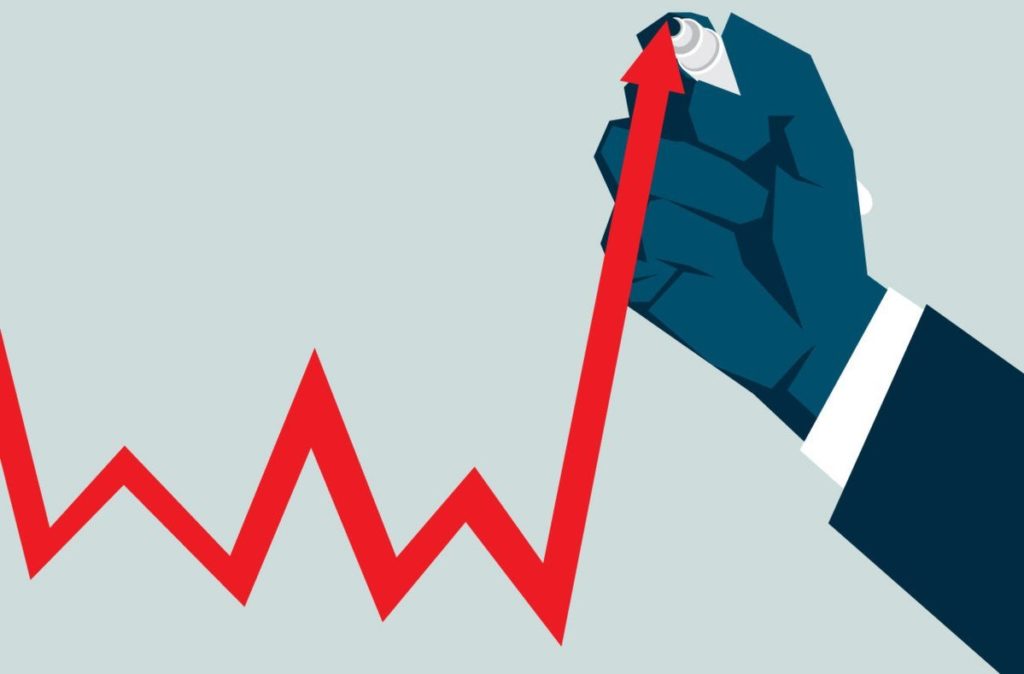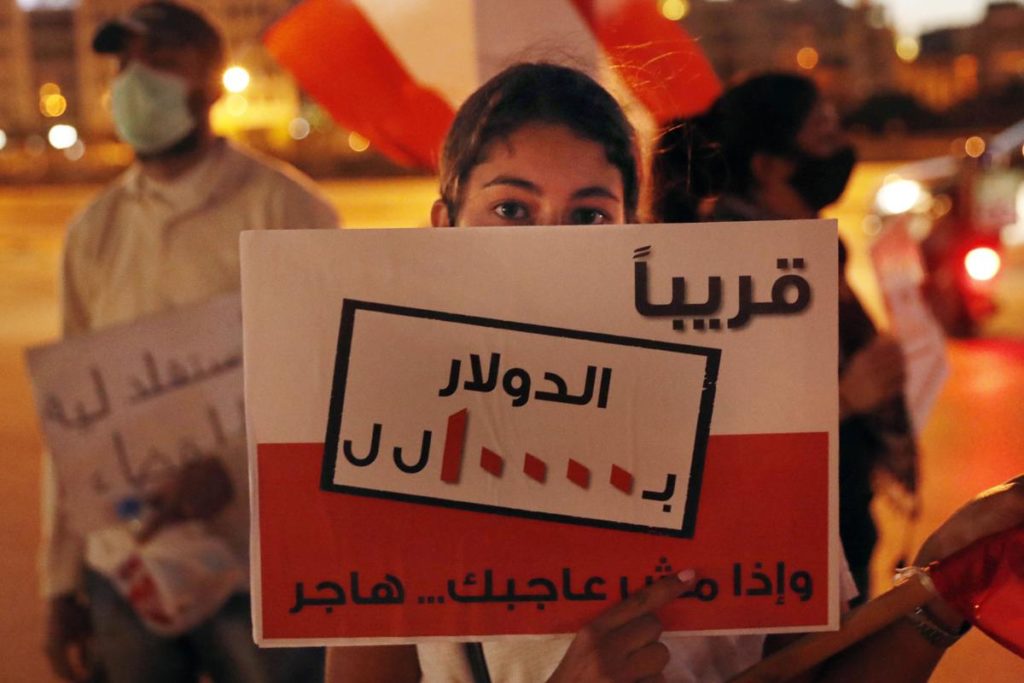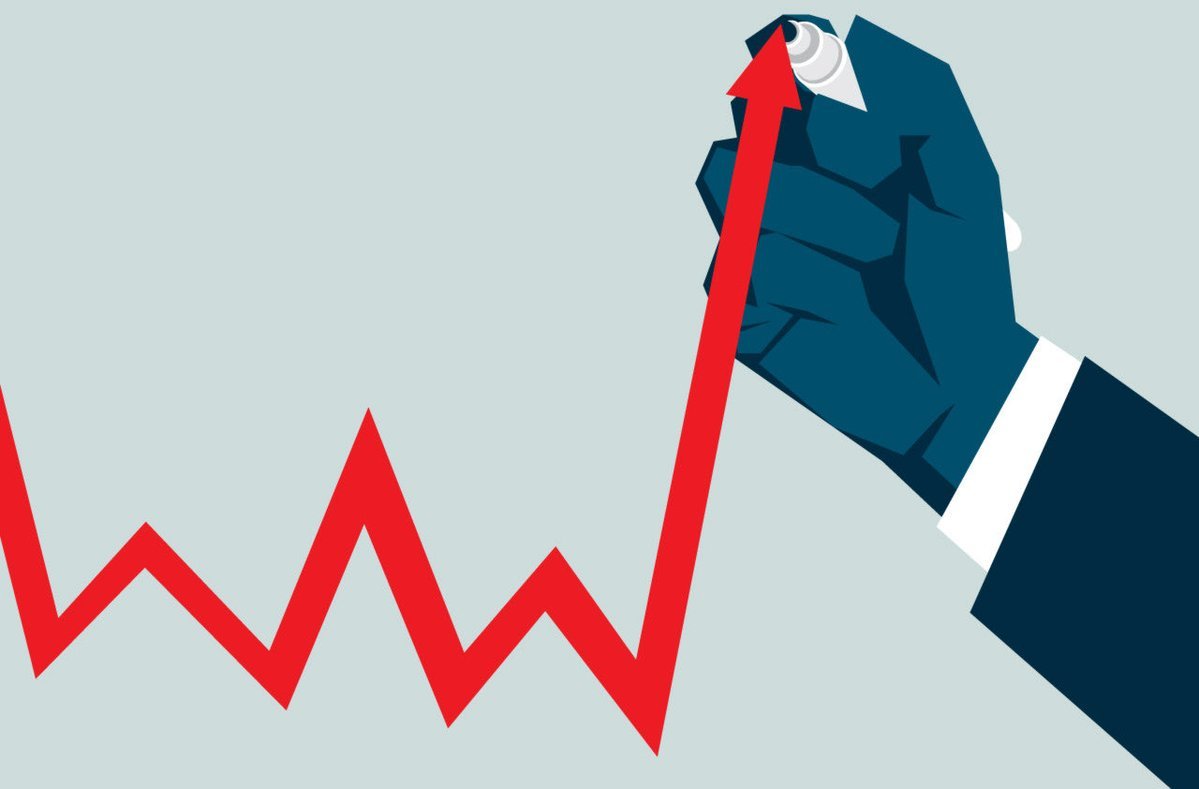
Yesterday will go down as a dark day in Lebanon’s history. That is when Lebanon was entered into the Hanke-Krus World Hyperinflation Table. When I measured Lebanon’s inflation rate yesterday, it was a sizzling 52.6 percent per month. That was the 30th consecutive day in which Lebanon’s monthly inflation rate exceeded 50 percent. So, on July 22, 2020, Lebanon entered the record books with the dubious distinction of recording the world’s 62nd episode of hyperinflation — the only episode to ever occur in the Middle East and North African (MENA) region. Now there are two ongoing hyperinflations: Lebanon’s, where the annual inflation rate is 462 percent, and Venezuela’s, where the annual rate soars at 2,219 percent.
Just how has Lebanon found itself in such an inglorious position? For years, the Lebanese government, the central bank (Banque du Liban), and savers played a game. The government spent more than it collected in taxes and financed its resulting deficits by paying sky-high interest rates on the debt it issued. The central bank bought some of the debt and kept the official pound-U.S. dollar exchange rate pegged at 1,500. The peg was designed so that those who purchased the government’s debt would have confidence that it would retain its purchasing power in U.S. dollar terms when it matured. Banks offered relatively “high” interest rates to depositors and were also part of the game. For a surprisingly long period of time, the money poured in from domestic savers, the Lebanese diaspora, and other foreign investors. They were all chasing yield and blind to the nature of the game.
Eventually, though, it became apparent that the government’s mountain of debt had become so large that the dollar-denominated portion could not be repaid in full. It also became clear that the government could not even repay the Lebanese pound-denominated portion in full unless the pound was officially devalued. At that point, the government faced an investors’ strike and was forced to default on a maturing foreign bond on March 9. The default triggered a sharp depreciation of the pound in the black market and a surge in inflation.

The game was over. Confidence in the pound’s peg vanished. All those yield chasers were running for the exits, and as they did, the pound collapsed in the black market.
Indeed, since January, the pound has shed 82 percent of its value against the greenback in the black market. As for the official exchange rate, the Lebanese can forget it. Their savings are frozen in Lebanon’s banks. The banks have no dollars to exchange and have imposed capital controls (read: strict withdrawal limits) to avoid collapse. Not a pretty picture.
What can be done to end Lebanon’s currency crisis? Lebanon should do exactly what I did in 1997 in Bulgaria, where I was president Petar Stoyanov’s chief adviser. A hyperinflation was raging at 242 percent per month. I designed a currency board system, which the Bulgarian government proposed to the International Monetary Fund. The IMF accepted the proposal immediately and a currency board was installed on July 1, 1997. Inflation was crushed and stability was established from one day to the next.

A currency board is a monetary institution (or a set of laws that govern a central bank) that issues a domestic currency that is freely convertible at an absolutely fixed exchange rate with a foreign anchor currency. Therefore, under a currency board arrangement, there are no capital controls. The domestic currency, which is issued by a currency board, is backed 100 percent with anchor currency reserves. So, with a currency board, the local currency is simply a clone of its anchor currency.
For over 170 years, currency boards have had a perfect record of establishing and maintaining currency confidence. In total, there have been over 70. Today, the largest and most notable currency board is Hong Kong’s.
Lebanon would be a perfect place to install a currency board. A Lebanese currency board would establish confidence and stability immediately. And while stability might not be everything, everything is nothing without stability.
NATIONAL REVIEW
STEVE H. HANKE is a professor of Applied Economics at the Johns Hopkins University in Baltimore. He is a senior fellow and director of the Troubled Currencies Project at the Cato Institute in Washington, D.C.
About Currency Board
What Is a Currency Board?
A currency board is an extreme form of a pegged exchange rate. Management of the exchange rate and the money supply are taken away from the nation’s central bank, if it has one. In addition to a fixed exchange rate, a currency board is also generally required to maintain reserves of the underlying foreign currency.
How a Currency Board Works
Under a currency board, the management of the exchange rate and money supply are given to a monetary authority that makes decisions about the valuation of a nation’s currency. Often, this monetary authority has direct instructions to back all units of domestic currency in circulation with foreign currency. When all domestic currency is backed with foreign currency, it is called a 100% reserve requirement. With a 100% reserve requirement, a currency board operates similarly to a strong version of the gold standard.
The currency board allows for the unlimited exchange of the domestic currency for foreign currency. A conventional central bank can print money at will, but a currency board must back additional units of currency with foreign currency. A currency board earns interest from foreign reserves, so domestic interest rates usually mimic the prevailing rates in the foreign currency.
Currency Boards vs. Central Banks
Like most of the world’s large economies, the U.S. does not have a currency board. In the United States, the Federal Reserve is a true central bank, which operates as a lender of last resort. The exchange rate is allowed to float and determined by market forces, as well as the Fed’s monetary policies.
By contrast, currency boards are somewhat limited in their power. They mostly just hold the required percentage of pegged currency that was previously mandated. They also exchange local currency for the pegged (or anchor) currency, which is typically the U.S. dollar or the euro.
Advantages of a Currency Board
Currency board regimes are often praised for their relative stability and rule-based nature. Currency boards offer stable exchange rates, which promote trade and investment. Their discipline restricts government actions. Wasteful or irresponsible governments cannot simply print money to pay down deficits. Currency boards are known for keeping inflation under control.
Disadvantages of a Currency Board
Currency boards also have downsides. In fixed exchange-rate systems, currency boards don’t allow the government to set their interest rates. That means economic conditions in a foreign country usually determine interest rates. By pegging the domestic currency to a foreign currency, the currency board imports much of that foreign country’s monetary policy.
When two countries are at different points in the business cycle, a currency board can create serious issues. For example, suppose the central bank raises interest rates to restrain inflation during an expansion in the foreign country. The currency board transmits that rate hike to the domestic economy, regardless of local conditions. If the country with a currency board is already in a recession, the rate hike could make it even worse.
In a crisis, a currency board can cause even more damage. If investors offload their local currency quickly and at the same time, interest rates can rise fast. That compromises the ability of banks to maintain legally required reserves and appropriate liquidity levels.
Such a banking crisis can get worse fast because currency boards cannot act as a lender of last resort. In the event of a banking panic, a currency board cannot lend money to banks in a meaningful way.
Real World Example of a Currency Board
Hong Kong has a currency board that maintains a fixed exchange rate between the U.S. dollar and the Hong Kong dollar. Hong Kong’s currency board has a 100% reserve requirement, so all Hong Kong dollars are fully backed with U.S. dollars. While the currency board contributed to Hong Kong’s trade with the U.S., it also worsened the impact of the 1997 Asian financial crisis.
INVESTOPEDIA


Leave a Reply
You must be logged in to post a comment.